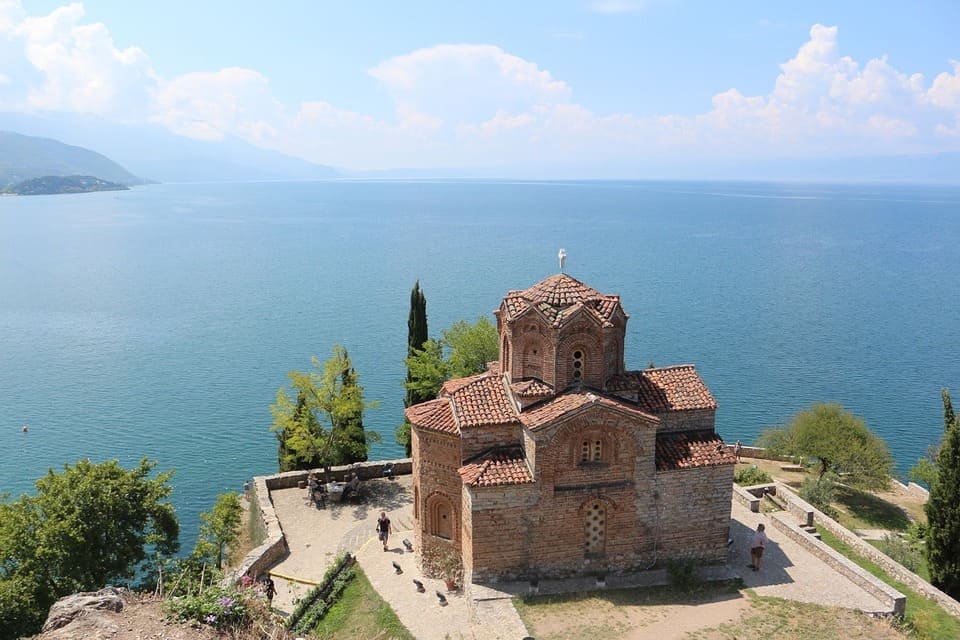
What Are the Main Languages of Macedonia?
Located in the Balkan Peninsula, Macedonia has a diverse linguistic landscape. The term "Macedonian languages" refers to various dialects and languages spoken throughout the region, all contributing to its linguistic diversity. This article will explore the official language of Macedonia, the dialects and other languages spoken within its borders, and the cultural importance of these languages.
Macedonia’s Official Language
North Macedonia is home to several languages that showcase its cultural richness. While the official language is Macedonian, other languages such as Albanian, Turkish, Romani, Serbian, and more are spoken by diverse communities. This multilingual environment extends beyond the country’s borders, with many of these languages also spoken in neighboring regions and by diaspora communities worldwide. In this blog, we will explore the official language, Macedonian, along with other prominent languages that contribute to the unique identity of North Macedonia.
The Official Language of North Macedonia
The official language of North Macedonia is Macedonian, a South Slavic language that developed from the western dialects of the East South Slavic dialect continuum. Its earliest recorded form is Old Church Slavonic, which has historical significance as one of the first Slavic languages used for written texts. Modern Macedonian has a distinct linguistic identity and is spoken by approximately 1.6 million people, primarily within North Macedonia. The language extends beyond the country's borders, with speakers in regions such as Greek Macedonia, Bulgaria, Croatia, Serbia, Slovenia, and Albania, reflecting historical migrations and the establishment of Macedonian communities. Furthermore, Macedonian has a notable global presence, especially in Australia, which is home to one of the largest Macedonian diaspora communities outside of Europe.
The Co-Official Language of North Macedonia
Albanian is recognized as a co-official language in North Macedonia. This designation is based on the fact that ethnic Albanians comprise approximately 20% of the country's population. The co-official status allows for the use of Albanian in local government, educational institutions, and public services, ensuring that the Albanian-speaking community can effectively engage in societal affairs. Key regions such as Tetovo, Gostivar, and Debar, where Albanian is predominantly spoken, benefit from this arrangement, promoting inclusivity and supporting the rights of minority populations within North Macedonia.
Minority Languages of North Macedonia
- Turkish: Introduced during the Ottoman Empire’s rule over the Balkans, Turkish has remained a minority language, primarily spoken in the central and eastern regions such as Centar Župa and Plasnica.
- Romani: It is spoken widely among the Roma communities across North Macedonia. The Romani language has a significant cultural presence due to the historic settlement patterns of the Roma people in the Balkan region.
- Serbian: Found mainly in the northern parts of the country, close to the Serbian border. The presence of Serbian is a result of historical proximity and past political affiliations between the regions.
- Aromanian: Also recognized as a minority language, Aromanian is spoken by the Aromanian community in North Macedonia. This language is similar to Romanian and reflects the heritage of the Aromanians, traditionally shepherds in the Balkans.
Unique Features of the Macedonian Language
- Postpositive Articles: Macedonian distinctively uses postpositive articles (articles that come after the noun), a feature shared with some other Balkan languages but unusual among Slavic languages.
- Absence of a Verb for "to have": Unlike most other languages, Macedonian does not use a verb equivalent to "to have" in expressing possession. Instead, it forms possessive constructions by combining the possessor, the possessed noun, and a linking word, which changes based on the gender and number of the possessed noun.
- Stress Patterns: Macedonian features a fixed stress, usually on the third from the last syllable, unlike the free stress found in many other Slavic languages, which can fall on any syllable.
- Clitic Doubling: This feature involves the repetition of object pronouns in a sentence. Macedonian uses clitic doubling to emphasize the object or to make the sentence clearer, especially in complex syntactic constructions.
- Future Tense Formation: Macedonian forms the future tense differently from most Slavic languages, using a future particle combined with a verb in the present tense, rather than inflecting the verb itself.
The Best Way to Translate Languages of Macedonia
Translating the languages of Macedonia is a complex task that requires expertise, cultural sensitivity, and linguistic precision. PoliLingua offers a wide range of services tailored to meet the specific needs of businesses, government entities, individuals, and non-profits in Macedonia. Our extensive services cover all aspects of language adaptation, including translation, localization, interpreting, subtitling, and voiceover services. With PoliLingua’s team of native translators, you can connect different cultures and enhance communication across languages.
Our diverse multilingual expertise, commitment to accuracy, customized solutions, and focus on confidentiality ensure that your Macedonian translations are of the highest quality.
The Macedonian language, as the official language, serves as the foundation upon which the country is built. Additionally, the various dialects and languages spoken in Macedonia create a rich mix of traditions, highlighting the coexistence of different ethnic communities. This variety fosters a sense of community and belonging, contributing to a more vibrant and united society.







